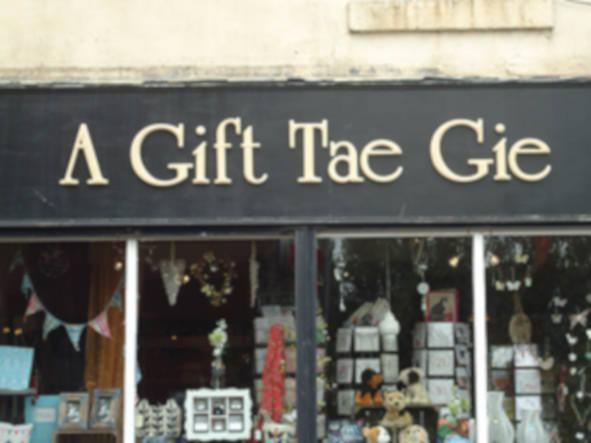Wir Ain Leed — An Introduction to Modern Scots
 West Kilbride, North Ayrshire
West Kilbride, North AyrshireEveryday speech in lowland Scotland and Ulster varies from speaker to speaker. That is often referred to as a speech continuum. In Scotland that continuum ranges from Traditional Scots, often called Braid Scots, the Doric, the Buchan Claik or the Moray Claik and Lallans (Lowlands) — to Scottish Standard English. In Ulster that continuum may range from the local variety of Scots to Standard English spoken with an Ulster Scots accent.
Thus many people in Scotland and Ulster have access to the features of two linguistic systems and are able to range from one to the other according to the demands of the situation in which they find themselves. Such decisions are usually based on stylistic and contextual factors, the use of features from the Braid Scots (Broad Scots) end of that continuum being far more likely among the working-class and older rural people, especially those whose exposure to the anglicizing endeavours of the education system has not been longer than necessary.
This website concentrates wholly on the Traditional Scots end of that speech continuum, drawing from descriptions of spoken Broad Scots and its accompanying literary tradition in sources that are often more than 100 years old, or themselves draw on material of such a vintage. Consequently, the site includes some archaic and obsolete vocabulary, grammar and idioms which have, due to dialect levelling, been replaced by Standard English equivalents. The chances of encountering an individual who speaks wholly as described here is remote, unless they are quite elderly. The Scots Language presented here was described in The Edinburgh Companion to Scots as being at an advanced stage of language death over much of Lowland Scotland by the end of the twentieth century.
Traditional Scots has no equivalent of 'RP'. Scots, or more accurately, what is left of it, is spoken in various mutually intelligible dialects. The traditional Scots spelling conventions used here can, on the whole, be read and pronounced in any Scots dialect. For further guidance on the pronunciation of particular words check them in our dictionary.
If you intend using this site to learn to speak Scots, choose the dialect you wish to learn and have a listen — all dialects are equally valid.
We hope the information at this site is of assistance. Feel free to comment on anything — especially mistakes and suggestions for improving user friendliness.
